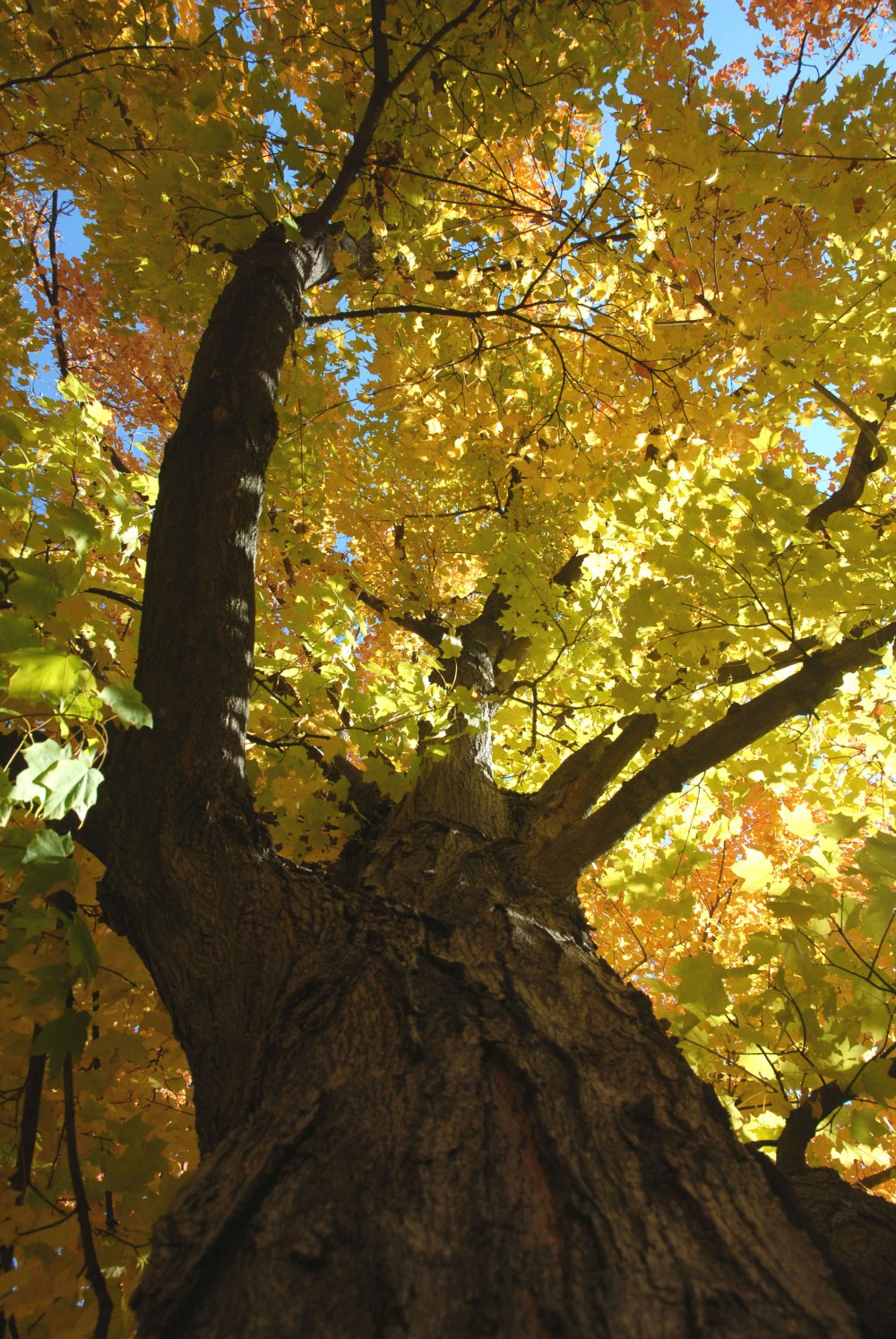Relaxing Video Games for the Eco-Apocalypse

So sometimes you wake up and you think: “Damn. I’m doing everything right – I’m voting for climate policies, I’ve cut down on meat intake, I take the train as much as I can, I’ve read the books and I’ve talked to people about climate action… and I still feel a gnawing sense of oh no no no no no. What can I possibly do to cheer myself up?”
I mean, maybe you don’t feel that way, but I certainly do.
Under these circumstances, games with an ecological slant can be marvellously relaxing. A kind of wish-fulfilment in which things get better and a promising future of blue skies and abundance plays out before you, I personally find myself retreating to these comfort-places where, whenever I feel a sense of awful, I can at least immerse myself in the fantasy of things being better. I’m still doing the work in real life, honest, but that doesn’t mean I don’t occasionally take a day off to just look after myself and chill the crap out. Here, therefore, are a few games with an environmentalist bent where I’ve found myself taking comfort on a wet Sunday afternoon…
Terra Nil
I do my TV subscriptions in one-month bursts, and in July rolled back round to Netflix for a few weeks. At that time, Terra Nil was available for free with a Netflix subscription. Buggy to the point of being inoperable on Apple devices, I did get it working on my Android phone and took it with me on the train from London to Munich as a relaxing thing to chill out to.
The premise is simple. There is a ravaged wasteland – perhaps a ruined city or a chemically-polluted river valley – and you have to restore it to greenery. You can play the game as a challenge or how I did – as a relaxing, low-energy puzzler. As you restore clean water to river beds, grass starts to grow. As the grasses grow, you may want to try and tweak the temperature or rainfall to encourage groves of mangroves or wild tundra. Perhaps you start a controlled burn to create the conditions for forests to flourish in the ashes, or try to cultivate island beaches next to gentle lagoons in order to coax the return of wildlife. There’s no real ‘wrong’ way to play Terra Nil, and it’s very much a cosy game to relax to – and incredibly satisfying in the process. There’s not enough game to justify spending huge sums on it, but if you can get it via subscription or on the cheap, it’s a lovely little gem.
Floodland
I love a city-builder/resource manager, and Floodland is very much in that vein. A group of survivors struggle to rebuild society in the ravaged wasteland of an environmental apocalypse, and your job is to keep them alive as they do so. It contains a fairly standard balancing act – the more survivors you find, the more things you can develop, such as better hospitals or the technology to harvest plastic from rubbish – but also, the more mouths you have to feed in a world where resources are often scarce. From an initially grim world, there is nothing quite as satisfying as the moment you finally get things under control and bring light back to the wasteland, and at its heart is a game about bringing together disparate communities with different ideas of how to rebuild the world. It’s here that Floodland has some of its most interesting mechanics, as you try to balance the demands of various factions with strongly held beliefs about how we got into this mess – and how we get out of it.
On its release, Floodland received mixed reviews; I only recently bought it on sale after a hefty patch, and it has been stable for me. And as someone who rarely notices soundtracks, every now and then a song comes on and I just stop what I am doing to enjoy the vibes.
Season
More a meditation on memory and change than an eco-narrative, Season never-the-less can very much be read in the context of the environmental crisis. You take the role of a young woman journeying across the land in the prelude to a great change of Season – a time when the old world will be swept away, and something new take its place. Your mission is to record all you see, so that what went before will not be entirely forgotten as the change takes place. It’s a slow, chilled out, highly meditative game – closer to wandering through a storybook than most things I’ve ever played. The environments are luscious and beautiful to be in, and though there is a hint of melancholy running through it, that sadness is also offset by thoughtfulness, wonder and hope.
Sims 4
The makers of the Sims 4 made a shrewd business decision a few years ago, and started handing out the base game for free. This is how I ended up playing it. I’d played earlier Sims games before – I have always loved building houses, and only ever had limited interest in the actual ‘sims’ part of the Sims. A few months after being given a free copy therefore, I realised the genius of this business decisions when the adverts started arriving for the optional (not free) game expansion packs. On the list of expansions was Sims Eco Lifestyle (everything in the Sims is about lifestyles, it seems, which again, as a dedicated house builder is of limited interest to me). As well as introducing all the usual gubbins of a Sims expansion pack – torn jeans and new haircuts – it introduced a whole environmentalist narrative, in which your sim could try to clean up their neighbourhood through eco-conscious actions and buildings.
Arguably a hippy dream, from its community gardens through to the 3D printers producing parts to upgrade your home into a self-sufficient bastion of shiny eco-friendliness, it’s become a place I go to de-stress from the reality of actual climate activism. A delicious fantasy of ‘wouldn’t it just be easy to add a solar panel here and everything gets better?’ the Sims is always going to be a bastion of questionable capitalism, but right now it’s just a stress-free place to fantastise about and build the eco-palace of my dreams.
Anno 2070
Many years ago (2011 to be exact) the Anno series released Anno 2070. The premise was the same as basically all Anno games ever – set up supply chains between different islands, keep your population happy, grow an economy. This time, however, the Arctic ice had melted and the two primary factions opposing each other were Tycoons (rapid expanders who pollute and poison everything) and the Ecos (slower builders who love themselves some sushi) vying for control of the world. Though it introduced very little new into its mechanics, as a contemplation of future conflicts through an environmentalist lens, I’d argue Anno 2070 was marginally ahead of its time. A sequel(ish) Anno 2205 was released in 2015, but its focus was less on stabilising the ecological calamity of the 21st century, and more on… well… mining the moon. Which is, if you think about it in purely Anno terms, just another really big island.
Cities Skylines
Less an eco-game builder, so much as a traffic-management sim with parks, I have sunk a lot of time into Cities Skylines despite myself, trying to build the perfect ‘green’ city. Oh the solar power plants! Oh the light transit infrastructure! Oh the organic commercial areas and self-sufficient, solar-powered homes! Oh the cycling lanes! An expansion was released to the base game a few years ago that really leant into this and allowed me to double-down on my green urban planner fantasies and the whole thing very much scratches the part of my soul that loves to make things flow. Although right now I’m kinda waiting to see whether Cities Skylines 2, which is due for release in the fairly near future, is going to finally let me rip on the car-free, eco-tastic, light-public-transport, park-heavy city planner of my dreams.
Honourable Mention: Surviving Mars
I bought this on special offer with a bunch of DLC attached, including one that really lent into the terraforming aspects. This game isn’t really about the eco-crisis, not least because, as the title suggests, it’s set on Mars. But again, if you are a very, very stressed out eco-activist who just wants to lose themselves in a pleasing fantasy about turning an orange world green with verdant, carefully nurtured life, then it’s a good place to spend a few hours. Also, the soundtrack is a banger. Try all the radio stations – they’re great.
Honourable Mention: Civilization VI
Civilization II was one of the first strategy games I ever played, and though I haven’t followed every instalment diligently, I did dip my toes back in a few years ago with Civilization VI. Again, while it isn’t a specifically environmentalist game, the addition of the Gathering Storm DLC added climate as an important strategic factor to consider, with consequences, especially in the late game, that you’d be unwise to ignore.





